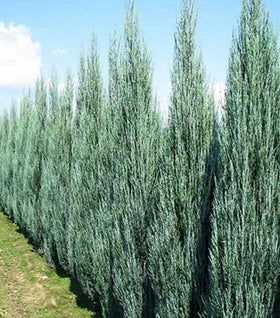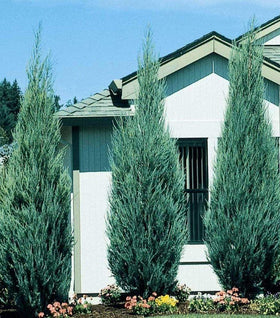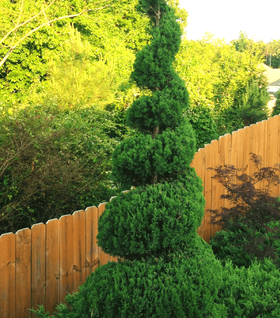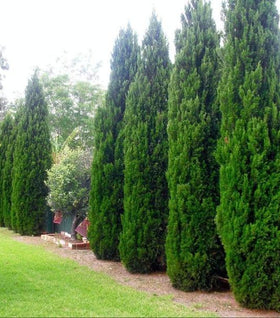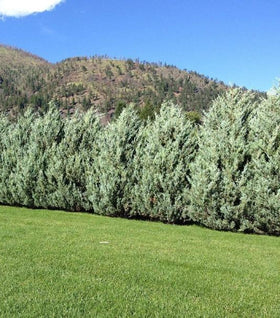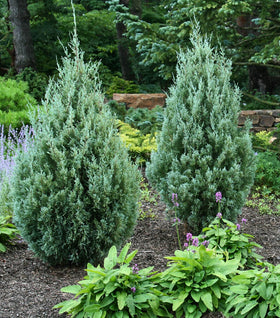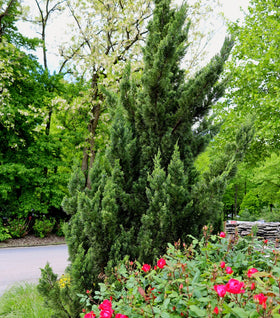Juniper Trees
Need evergreen structure that thrives on low care? Juniper trees deliver year-round color, excellent drought and heat tolerance, and dependable screening in spaces where other conifers struggle. From pencil-slim spires to bold, blue pyramids, we curate landscape-proven junipers with clean foliage, strong leaders, and forms that behave beautifully in modern yards.
When you buy juniper trees online from Garden Goods Direct, you get nursery-grown, zone-appropriate stock with honest height/spread, plus straight talk on spacing, siting, and pruning—all backed by our "We Grow Together" Promise. Mix columnar junipers for tight privacy, use blue forms for color contrast, and anchor beds with tough, architectural silhouettes that look sharp twelve months a year.
Why Choose Junipers: Year-Round Color, Slim Privacy & Drought Smart
Junipers bring evergreen reliability in hot, windy, and lean-soil sites. Their resinous, aromatic foliage stays handsome through winter, while naturally narrow habits make them ideal where property lines are tight. Many forms exhibit steel-blue to blue-green tones that stand out against brick, stone, and dark siding.
Juniper Forms & Foliage That Perform: Columns, Pyramids & Blue Showpieces
Ultra-Narrow Columns: Juniperus scopulorum ‘Skyrocket’, ‘Blue Arrow’—pencil-thin accents for gates, garages, and courtyards.
Upright Pyramids: J. chinensis ‘Spartan’, ‘Blue Point’—dense screens with strong leaders and classic conifer presence.
Sculptural Characters: Hollywood Juniper (J. chinensis ‘Torulosa’)—windswept branching for coastal drama; Wichita Blue—broad pyramids with luminous blue.
Design That Works: Living Screens, Entry Columns & All-Season Contrast
Tight Privacy: March Skyrocket/Blue Arrow down a boundary for a light-filtering wall that won’t eat the patio.
Formal Rhythm: Pair Spartan or Blue Point as flanking sentinels and repeat at intervals for a designer look.
Color Contrast: Drop Wichita Blue against green hedges or warm masonry to brighten the composition year-round.
Juniper Planting & Care Playbook: Sun, Soil, Spacing & Pruning Made Easy
Planting: Plant in full sun (6–8+ hrs) with well-drained soil; junipers dislike wet feet. Set the root flare at/above grade, backfill with native soil, water deeply, and mulch 2–3″ (off the trunk).
Watering: Keep the junipers evenly moist during the first season; once established, they show excellent drought tolerance and require only occasional deep soaks.
On-center spacing (quick guide): ultra-narrow columns 2.5–4 ft; pyramids 5–8 ft (looser for specimen effect).
Pruning: Minimal—tip-shear lightly after the spring flush to maintain the line; avoid cutting into leafless interior wood.
Elevate the planting with Evergreen Shrubs for layered depth, Drought Tolerant Shrubs
for color along hedge lines, and Pollinator Plants to keep seasonal color humming.

